SUMMARY
This is AI generated summarization, which may have errors. For context, always refer to the full article.
![[OPINION] HerStory: Keep retelling women’s stories of truth](https://www.rappler.com/tachyon/2021/03/women-stories-of-truth-March-4-2021.jpg)
As a young girl, all I wanted was to sing. My family was very supportive; my parents even brought me to Repertory Philippines to audition for Sound of Music. I was convinced that I would pursue a life in the arts — as a singer and actor in musical theater.
But, life had other plans. In 1981, my mommy took me to the Nuclear Free Philippines Coalition symposium. It was the first event of my life that inspired in me action and a bias for what is right and just. I then formed a Nuclear Disarmament Group in my high school – St. Scholastica’s College. When I entered university, I was active in student government, eventually taking the position of Internal Vice President of the Sanggunian in Ateneo. Taking on leadership roles, inadvertently or not, has not stopped since.
Years later, I found myself working in the government peace negotiating panel with the National Democratic Front, becoming a founding member of my democratic socialist political party Akbayan, being a representative of Akbayan in Congress, then now, taking the role of Senator in the Philippines.
None of this would have happened if not for the encouragement, suffering, and sacrifice of the women around me. I have been lucky. I was raised by strong women and grew up among them. Never in my life did I think that my gender would hold me back from what I wanted to do. It is this very same reason why sexism confounds me, because all my life I’ve witnessed and even partaken in the power of women.
I do recognize my privilege, however. When we talk of reports about the Philippines having the most number of female executives, or when we talk about successful women in the workplace, we also need to consider the challenges in socioeconomic inequality.
These “female leaders,” myself included, may not have the same barriers to positions of power as someone in a far-flung area in the country who has no access to basic education. This is not to downplay the success of female leaders who had to power through very real gender issues, but this is to continuously be cognizant of the fact that many more Filipinas are among the most vulnerable among us.
Our domestic workers, our OFWs, our health workers, our social workers — the majority of these are women. They are the ones who make our country turn. I am reminded of a Bloomberg article regarding tech leaders like Steve Jobs or Mark Zuckerberg and how, while they are regarded as society’s heroes, “the world is,” according to writer Laura Bliss, “maintained and sustained — so often by unnamed, unseen, and underpaid labor.”
Unpaid, unseen, and unnamed labor is also most apparent in the care work led by women in households. Care work has always been a vital and yet undervalued contributor to economies. It’s been reported in the New York Times that the total unpaid domestic labor of women turned out to be worth at least $10.9 trillion, an amount greater than the worth of the 50 biggest companies in the world combined. Since the outbreak of COVID-19, UN Women shared that women have seen a 30% increase in unpaid domestic and care work due to the lockdowns.
I am laying out all these realities numerous women face in order to stress that while, yes, we should celebrate and laud female leaders, these women in positions of power also have the responsibility to ease the multiple burdens vulnerable women carry. It is not enough to be a woman in power, because our own history has shown us that female leaders can be tyrants, too.
We must use our unique experiences as women to uplift other women; not be passive conduits for the persisting patriarchy. We women have a unique, particular point of view that we can inject in our work. We have a heightened sense of beauty even in the midst of effort, an intellect rounded out by emotional quotient, and empathy that values compassion even in the heat of conflict – not because these are distinct to us women or because our male counterparts cannot contribute them, but because of the sex-disaggregated way we raise our daughters and sons, and socialize our women and men.
In my work, I have tried my best to use my own experience or the experiences of women dear to me in the laws I craft. One of the most universal female experiences is how we are frightened of walking alone, especially at night, for fear of intimidation, harassment, catcalling, or stalking. It is a fear that we, for so long, weren’t able to articulate until women’s groups started to resist, until women started to say enough.
I heard this resistance loud and clear, and sought to pass the Bawal Bastos law or the Safe Spaces Act. This law is a game-changer. The law doesn’t only mean a change in policy; if implemented properly, it can change behavior and culture in the Philippines as well.
As a mother working outside the home and as a solo mom, I am deeply familiar with the difficulties of being a new mom. In fact, I had just had a baby when I agreed to stand as a nominee of Akbayan in the House. Personally knowing the challenges that this entails, as a senator, I passed the Extended Maternity Leave law. Before 2019, Filipino mothers were only allowed 60 days maternity leave, the shortest maternity leave in the ASEAN region.
Because of this new law that extends maternity leave to 105 days, not only is the Philippines at par with international standards, we are also ensuring that Filipino moms have enough time to rest after pregnancy and childbirth. Through this law, solo moms also have an additional 15 days on top of the 105 days. We are also currently trying to pass the Expanded Solo Parents Welfare Act, which will give more benefits to solo parents, such as discounts on tuition fees, services, and goods, among others.
Nonetheless, as a senator, as a female leader, I still have insecurities I contend with: a shyness, not particularly from being a woman, but from my childhood, that my thoughts are not encompassing enough, my words not precise enough, my actions not appropriate enough. I deal with it by keeping on learning, testing my thoughts, and acting with others. I know that other women, too – leader or not, have to navigate similar insecurities. And we must only keep at it with conviction, humility, and solidarity.
We must always remember that our experience as women matters, so let us use it well. Our stories matter, so let us keep retelling them. We must all actively push for the women’s agenda. We need more active participants for our country, our democracy to survive. We especially need female participants for our democracy to thrive. The present conditions of our time call for more women, especially those of privilege and in power, to band together for the greater good. Babae at bayanihan. Pilipina para sa kapwa Pilipina. – Rappler.com
Senator Risa Hontiveros is a health and women’s rights advocate, a proud activist, and a champion of the basic sectors. She is the Philippines’ first socialist woman senator.
Add a comment
How does this make you feel?

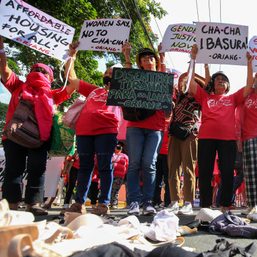
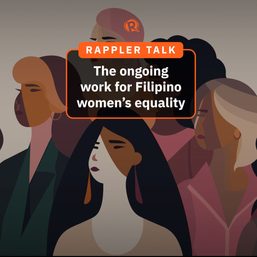

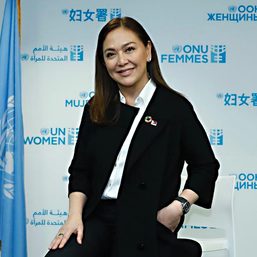

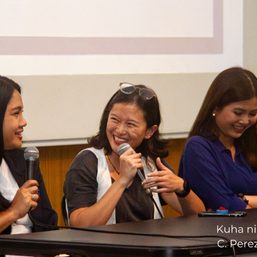
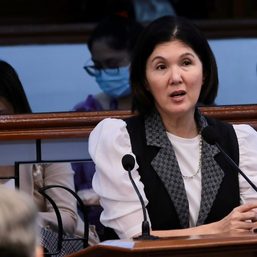
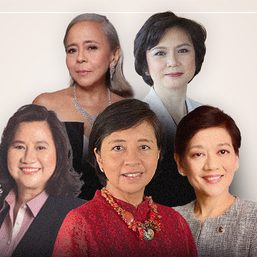
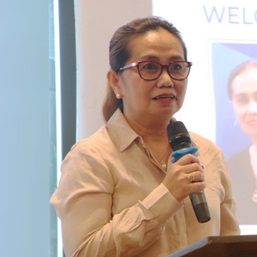


![[Dash of SAS] Making abortion a constitutional right](https://www.rappler.com/tachyon/2024/03/Its_true_-_Flickr_-_Josh_Parrish-1.jpg?resize=257%2C257&crop=125px%2C0px%2C768px%2C768px)
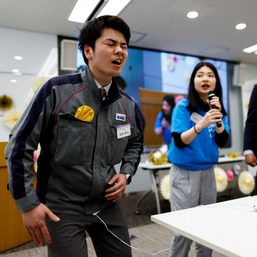


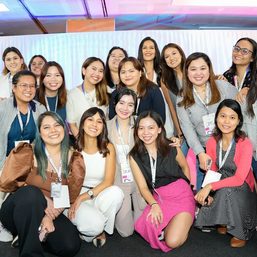
There are no comments yet. Add your comment to start the conversation.